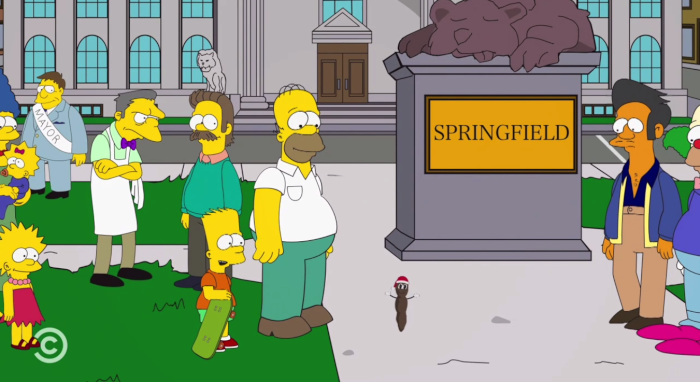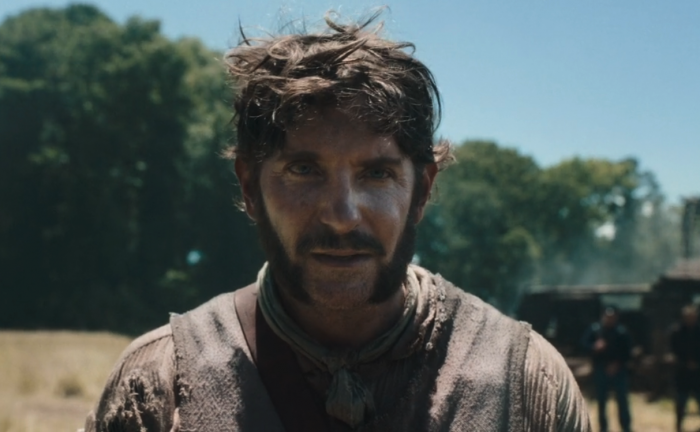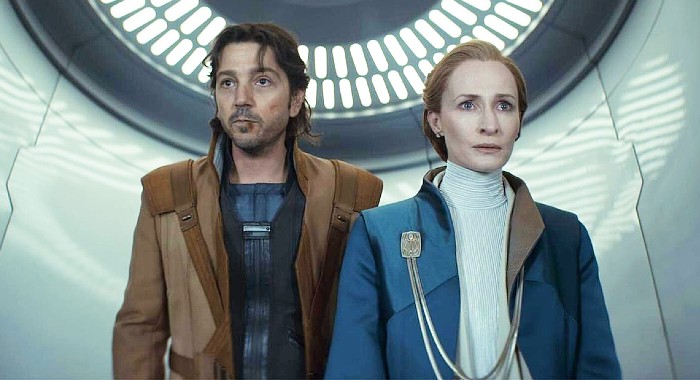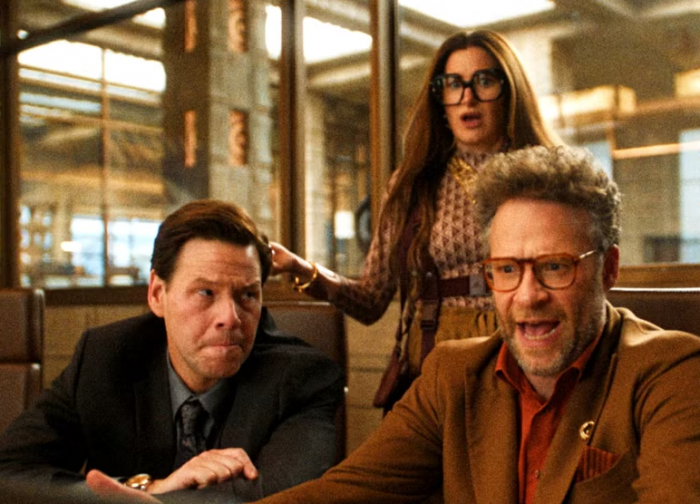
'South Park' Smears Rosanne, Kavanaugh, And 'The Simpsons,' But Their Take Kinda Stinks
By Tori Preston | TV | October 11, 2018

It’s hard to remember the days when South Park wasn’t a series that trucked almost exclusively in hot takes on current events. Of course, that’s probably because the show is now in its 22nd season, and most of its viewers were literal children when it first premiered. Back then, it mined laughs from the shock value of potty-mouthed eight-year-olds (one of whom died each episode) and the novelty of making Isaac Hayes sing about Chocolate Salty Balls, or trotting out a singing piece of crap in a Santa hat every holiday season. Remember when they hyped a guest spot for George Clooney, only to have him “voice” a dog? Pop culture was always a part of the South Park ethos, but it took a few years before the show became more known for its incisive commentary than its general absurdity.
And I’ll be honest: for a long time, what South Park had to say about the world spoke very distinctly to me. When it recreated the 2004 election between George W. Bush and John Kerry as a school mascot vote between a Giant Douche and a Turd Sandwich, making a strong argument for why votes matter even if the choice usually IS between two equally distasteful options, it reflected the feelings a lot of us had that we may not have wanted to express. We knew why voting is important. But sometimes it doesn’t feel like it matters, and it was so cathartic to see that reflected somewhere, dammit! The series made a name for itself as the show that called out all hypocrisy equally. But it started doing so in a time when thumbing your nose at everyone did feel like taking a stance, of sorts. Or at least it still felt novel.
Cut to 2018, and things are different. I watched last night’s episode, “The Problem With a Poo” (remember that title for later, folks), and I realized that I can’t remember the last time I’d actually watched a new episode of South Park. It would be easy to say I have outgrown the show’s schtick — after all, I’m no longer a child or even an angsty college student but a 35-year-old. It would also be easy to say that the world has changed, and there is less room for such middle-of-the-road grandstanding. But as I watched the episode, I realized that maybe South Park itself is the one that has changed. It has become so invested in commenting on current events that it doesn’t take the time to say anything at all, really. I don’t mind a clear “fuck you” to both sides of the establishment. I do mind if that “fuck you” is muddled and perfunctory.
Ostensibly, last night’s episode was about Mr. Hankey getting fired from directing the South Park Christmas Pageant after he sent out a load of racist, sexist, bigoted, and generally very hateful tweets. While on Ambien, of course. Here are some choice quotes from Hankey’s Roseanne-esque social media sh*tstorm (pun intended):
“retarded homos who can’t play”
“pussy-licking islamists”
“City Council can suck my Mexican dick”
“Everyone in South Park is a goddamn douche bag”
“The Mayor of South Park is a titless whore”
(I was scrambling to write these so they may not be exactly accurate, but you get the gist)
Kyle decides to represent Mr. Hankey in a televised hearing, which is supposed to be a big ol’ Kavanaugh reference but Hankey’s constant sniffling is about the extent of it. When Kyle asks the other boys to help, saying “I want to stand by my friend,” Cartman’s response is telling: “Hmm, let’s see how that goes for you in 2018.” And sure enough, by the end of the episode Hankey is drummed out of town, and Kyle himself is smeared in shit.
Is Hankey wrong? Yes, of course. But the vast awfulness of his comments combined with the repetition of the Ambien jokes muddles any sort of message. The thing about Roseanne is that what she said was inexcusable, and while I do think that she was probably in a stressful and mentally unhealthy place at the time, it’s also very telling just what sort of hatred emerged from her rock bottom. In the episode, all I really got is that the writers think the Ambien defense is ludicrous. Beyond that, the focus is more on whether there is room for people to make mistakes in 2018 — and what happens to the folks who don’t immediately drop those figures who are disgraced. There’s the usual South Park cynicism in Cartman’s statement earlier, but that also can’t be the final say. Joking about the inevitability of 2018 is fine, but there is a fine line between “don’t bother standing by your disgraced friend” versus “maybe you can be friends with someone without condoning their obvious misdeeds.” I know, I know, it’s a f*cking cartoon, but the effort to make the Hankey case so over the top just eliminated the possibility to unpack some of the nuances of what is actually a very interesting angle: how DO you reconcile your affection for someone with their public disgrace? Kyle knows Mr. Hankey messed up, but wonders if he deserves all of this — and the show seems to be saying that it doesn’t matter whether he deserves it, because society’ll give it to him anyway. We can all be shitty sometimes, but it’s society’s fault for trying to sweep all of that away.
(It doesn’t help that the B plot is all about how PC Principal and Vice Principal Strong Woman have quintuplets together, but they are PC Babies who cry at anything mildly offensive, even though “Sometimes PC babies don’t even know what they are crying about.”)
So how does The Simpsons fit into all of this? It’s nothing more than a throwaway stinger at the very end. Once Mr. Hankey is run out of South Park, he goes to the one place where he can get away with being so offensive and insensitive: Springfield. Where he’s welcomed by Apu. Now, I thought this was a pretty clear (albeit easy) slam against The Simpsons for its handling of the highly publicized criticism of South Asian stereotyping, as presented in Hari Kondabolu’s documentary The Problem With Apu (get it? Apu? “a Poo”? The episode title is a joke too!). However, apparently Simpsons showrunner Al Jean felt differently. As he told The Hollywood Reporter:
“It’s actually in favor of us saying people are too critical. Hari Kondabalu [one of the most outspoken critics of the Apu character] tweeted he thought they agreed with him but pulled the comments showing he was wrong. All season the show has had a #cancelsouthpark hashtag so my response (which I tweeted) is: #pleasedontcancelsouthpark.”
And maybe that’s the problem with South Park in a nutshell. Before, their brand of wishy-washiness was simply that they took aim at anyone and everyone — but at least those people could tell they were being skewered. It laid bare the hypocrisy we were all guilty of, while also voicing our private shames. But at the very least, it always raised the issues it wanted to raise, rather than this rote meaningless commentary it’s offering up. It used to have something to say, but now it simply HAS to say SOMETHING — and the result is so imprecise that folks are taking its slams as compliments! And the thing is, I don’t need South Park to be incisive anymore. I can get that almost anyplace these days. But I’d probably watch again if they went back to talking about mad scientists sticking extra butts on things again.



